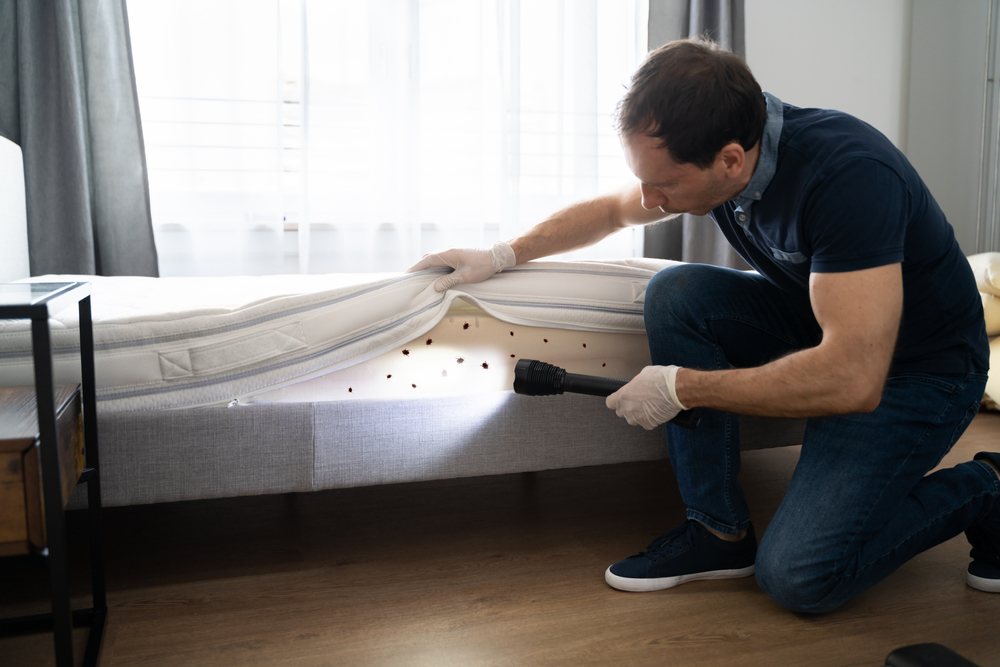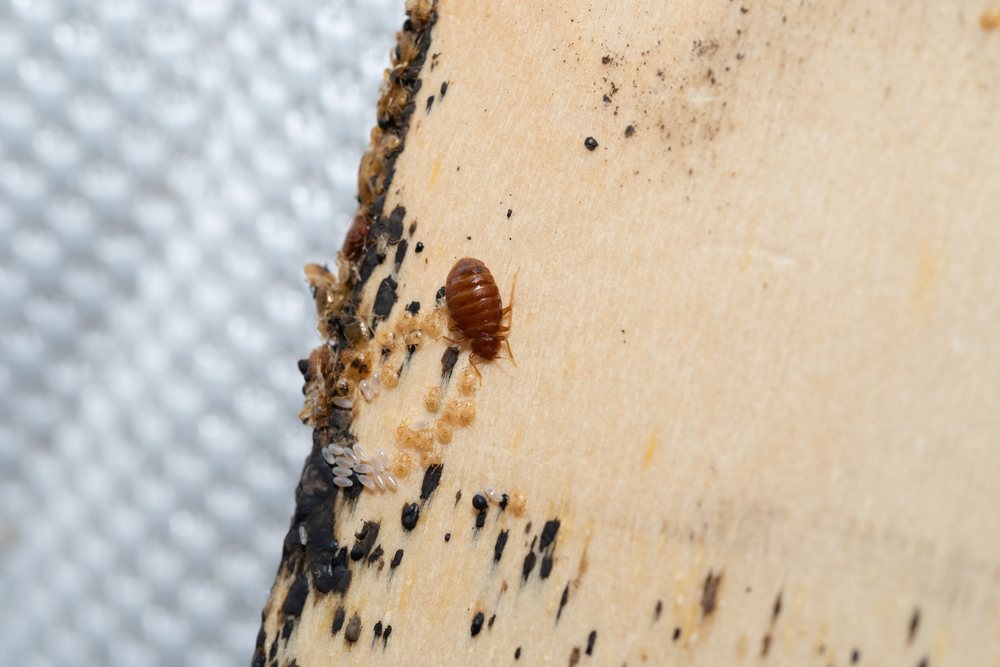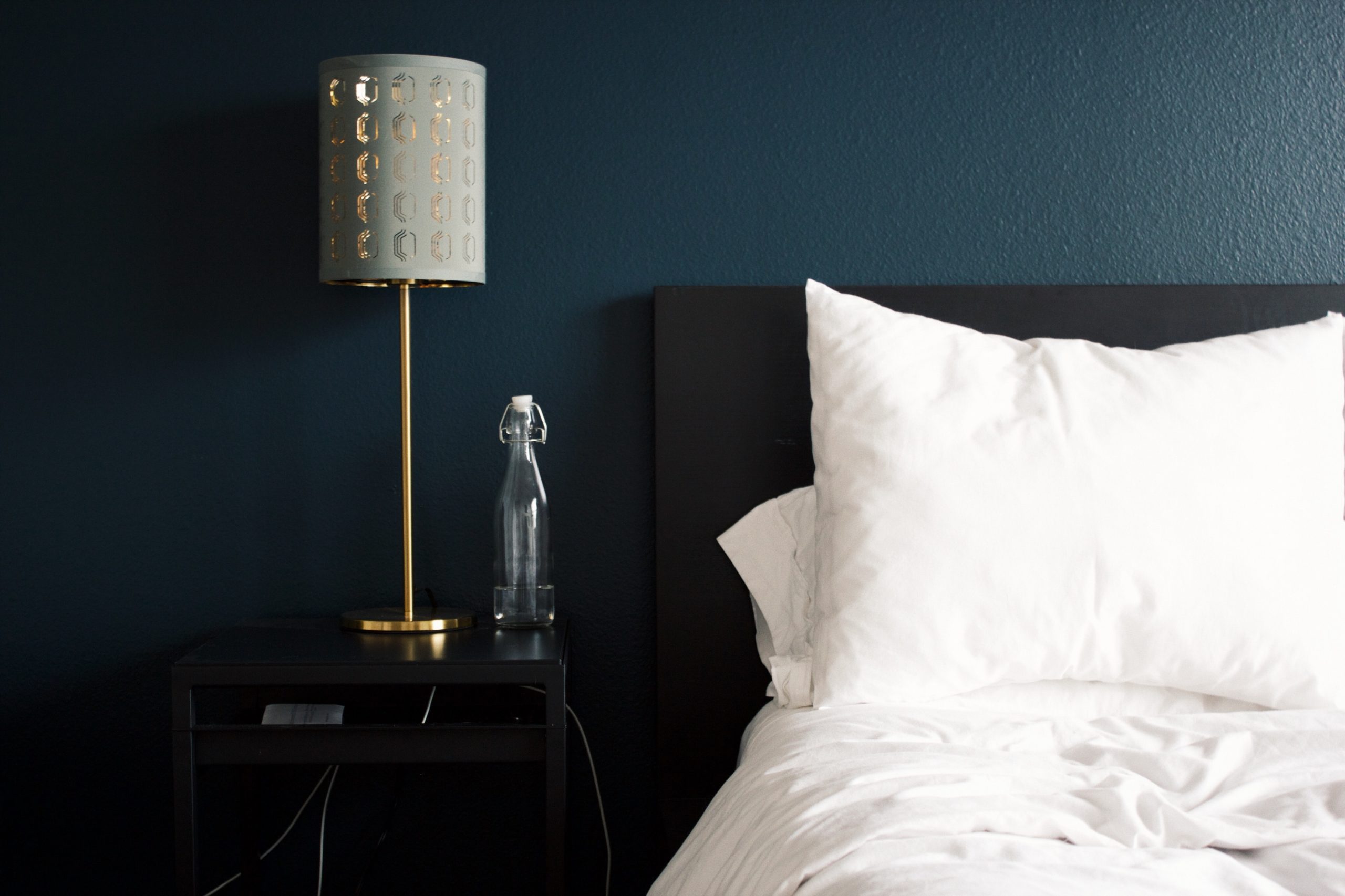It’s no secret that bed bug bites are a pain to deal with.
Those unsightly, crimson-colored welts can mar otherwise healthy skin and serve as a reminder that you act as the main food source for an infestation of bed bugs.
The irritation only grows the longer the body fights back against proteins injected by these pests.
Bite marks can cause anxiety and paranoia, as you are likely doing everything you can to eradicate the pests while also working to relieve yourself from their bites.
And yes, bed bug bites do itch.
But there’s more to it than that.
While many people know that bed bug bites result in itchiness, the intricacies behind this process might not be common knowledge. The itching which stems from bed bug bites is a natural reaction, a physical side effect of the human body’s efforts to remove the irritation and return to normal.
Page Contents:
Do Bed Bug Bites Itch More at Night?
Most people believe that insect bites, including those made by bed bugs, tend to itch more at night. There is more truth to this idea than many realize. Theoretically the answer is no, but psychologically and biologically there is some truth to bites being more irritating in the nighttime.
Once bed bug bites begin to emerge on the skin…
The body begins to produce a hormone called cortisol. This is a natural steroid produced by the body and acts as an anti-inflammatory agent.
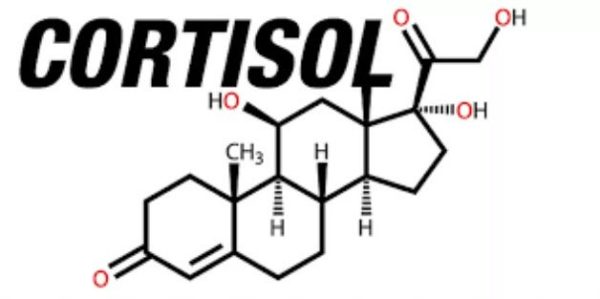
During the day, when the body is active, production of cortisol and other anti-inflammatory hormones is at its greatest.
(Leading to lower skin inflammation and irritation).
Since you are also awake, you may be actively applying other treatments to help soothe the itching. You might even be able to ignore the bites if you are preoccupied with your daily activities.
But when night comes around, these defenses begin to wane.
With your body working to refresh itself after the exhaustion of the day, cortisol production is reduced. You are also no longer working to apply external remedies to the bites, nor are you distracted by the daily grind.
As a result, your attention is placed entirely on the bed bug bites and how itchy they are.
And this is before taking into account that bed bugs are nocturnal, ready to perpetuate the irritation all over again.
It’s no wonder that insomnia is one of the most common symptoms of being bitten by bed bugs.
Do Bed Bugs Itch Right Away?
When bed bugs bite into skin, they inject an anesthetic into the bloodstream. This anesthetic prevents the bite from itching immediately, allowing bed bugs to feed without being noticed.
Note: This anesthetic is critical to bed bugs being able to feed properly. A full feeding takes around 10 minutes, so these pests need their hosts to be motionless during the feeding process.
The time it takes for someone to feel a bed bug bite will vary. Some will begin to feel the itching within a few hours of being bitten. Others won’t develop symptoms for several weeks.
On average, bed bug bites will begin to emerge and itch between 1 to 3 days after a person has been bitten.
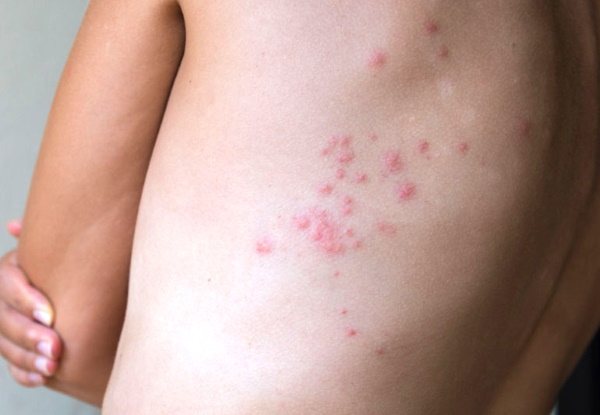
For some lucky victims, bites won’t appear at all and no physical symptoms will occur. This shows how the degree of the skin reaction is hard to generalize.
(Because it’s extremely case by case).
Do Bed Bugs Itch Like Mosquito Bites?
Like bed bugs, mosquito saliva also contains proteins which cause inflammation once injected into the bloodstream. But while the body’s overall reaction is the same regardless of the bite, there are key differences between a bed bug bite and a mosquito bite that can be used to distinguish the two.
Bed bug bites look like clusters of tiny red welts anywhere where the bugs were feeding. They also appear in patterns, such as zig-zags or straight lines. In some cases, the bites may be filled with fluid.
Mosquito bites take the appearance of a single, large welt. They do not appear in any distinct patterns, and tend to be randomly dispersed if more than one bite is present.
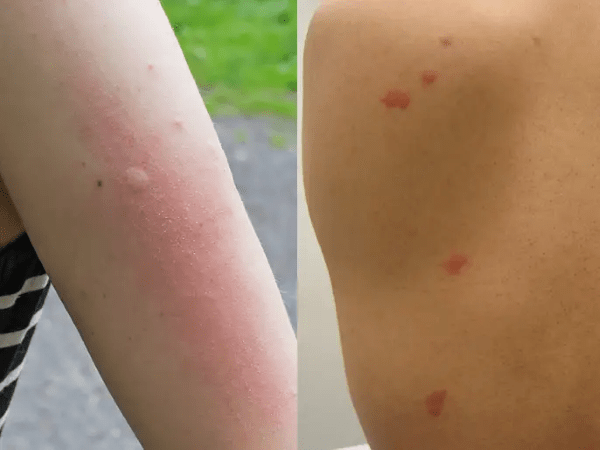
While bites from both pests are prone to allergic reactions, bed bug bites have a greater chance of becoming inflamed or infected.
Since bed bugs also bite in clusters, the symptoms can be more severe.
For more information about how to distinguish bites from bed bugs vs. other similar pests, click here.
How Long Do Bed Bugs Itch?
The duration of a bed bug bite varies from person to person. On average, bites will clear up after 1 to 2 weeks on their own, with medical treatments helping the healing process along.
Those who are more sensitive to bed bug bites might not see the welts clear for 3 weeks after being bitten.
The healing process can also be accelerated through the use of over the counter medication.
Do Bed Bugs Itch or Hurt?
Bed bug bites are irritating, and it is tempting to scratch them in order to relieve the itching. But doing so can lead to more problems.
Scratching an afflicted area may open the welts and cause them to bleed, potentially leading to infection. Previously unaffected skin might also be broken if one scratches hard enough, which could lead to the bites spreading and causing itchiness in places where the bed bugs might not have bitten previously.
In severe cases, people can develop allergic reactions to bed bug bites.
Severe symptoms may include:
- Blisters
- Hives
- Anaphylaxis
If you begin exhibiting any severe symptoms related to a bed bug bite, seek medical attention immediately.
Why Do Bed Bugs Itch?
The reason a bed bug bite itches so much is due to the insect’s saliva. As a bed bug feeds, its saliva mixes with an anticoagulant that prevents the blood from clotting. Simultaneously, an anesthetic is produced to temporarily stall any itching.
Once the anesthetic wears off, the body begins reacting to the proteins found in the bed bug’s saliva. It releases histamine, a hormone which enables white blood cells to begin combating the foreign bacteria left by bed bugs.
Histamine is a pro-inflammatory agent, meaning that this compound is responsible for the itchiness associated with bed bugs.
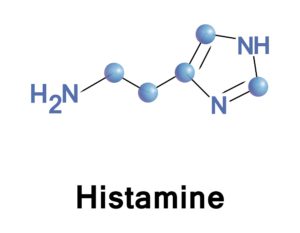
Attempting to relieve the itching by scratching a bite will only aggravate the inflammation more.
In some cases, itching a bed bug bite may lead to other areas of the body becoming infected.
Ways To Relieve Bed Bug Itch
If left alone, bed bug bites will heal on their own after a few weeks. But most people can’t bear with the irritation and embarrassment resulting from a bite for that long.
Fortunately, there are several remedies available to relieve the itching associated with bed bug bites.
Over-the-Counter Treatments
As mentioned earlier, your body responds to a bug bite by releasing high amounts of the inflammatory protein histamine. Many over-the-counter ointments for bites are marketed as antihistamines for this reason, and will soothe the itchiness once applied to an affected area.
Antihistamines can be applied in several ways.
Oral Antihistamines: These are pills that can dull the irritating sensation and prevent you from reacting to your bites.
Topical Antihistamines: Though these are typically used to treat hives or eczema, it can also help relieve the itching sensation of bed bug bites.
Commonly sold antihistamines include:
- Allegra
- Benadryl
- Claritin
- Reactine
If you prefer not to use antihistamines you can also try…
Cooling Lotions: Whether it be calamine lotion or aloe vera gel, these topical ointments can help relieve itching immediately. This is important because lotions reduce the need to scratch, which reduces the risk of further exacerbation of the bite.
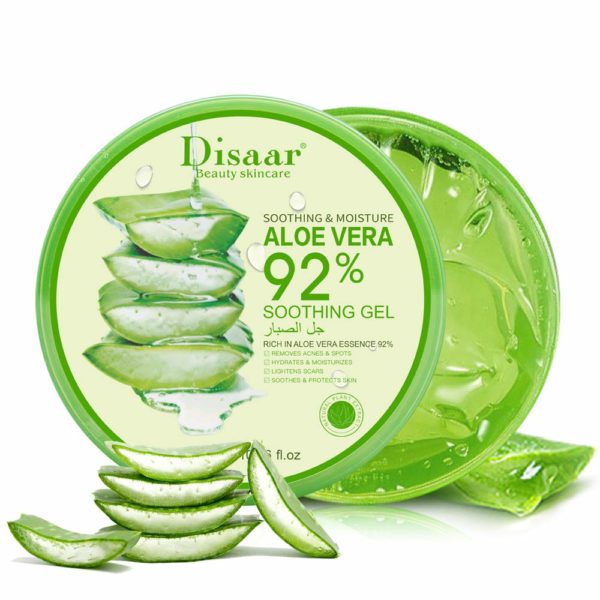
Home Remedies
For more resourceful people, there are several home remedies that can be used to reduce itching and irritation associated with bed bugs.
- Apple cider vinegar:
This is widely known as a remedy for all types of bug bites and stings, with bed bug bites being no exception. The vinegar helps to counter the burning sensation associated with inflammation, and can also act as a disinfectant if you reopened the bite while scratching it. Dip a cotton ball into the vinegar and press it to the bite for several seconds.
- Cold compresses:
Compresses are another easy and simple treatment. Making a compress is as easy as placing ice in a plastic bag or a cloth and pressing it directly over the area of the bite. Cooling the skin reduces inflammation, and therefore the itchiness.
- Liquid astringents
This includes witch hazel, which contracts the pores of skin and can be used to reduce minor bleeding. Witch hazel also acts as a minor anesthetic, numbing the areas of infection for several hours and offering temporary relief from the itching. However, it is important to note that astringents with alcohol do not help–the alcohol will dry out the skin and only irritate the bites more.
- Toothpaste:
This is an ever-present treatment that most people might not be aware of. Menthol, the chemical compound which gives toothpaste its minty flavor, can act as a cooling agent and reduce inflammation. Toothpaste is also an astringent, meaning that it tightens the skin pores and dries out excess fluids, including those left behind by bed bugs.
Victim of Bed Bugs? Consider Your Legal Options
If you suffered from bed bugs in your hotel or apartment you can give us a call at (855) 733 9217 for your quick and easy consultation.
(Available 24 hours a day 7 days a week).
If you choose to inquire about a claim, consultations are 100% FREE.
We understand the sensitivity of the situation, and the potential embarrassment that falling victim to an infestation can cause.
Working with an experienced bed bug bite attorney, you can not only receive compensation for your injuries, but you can also help prevent future infestations by discouraging future negligent practices.Get in touch today!
Written by James Oliver
